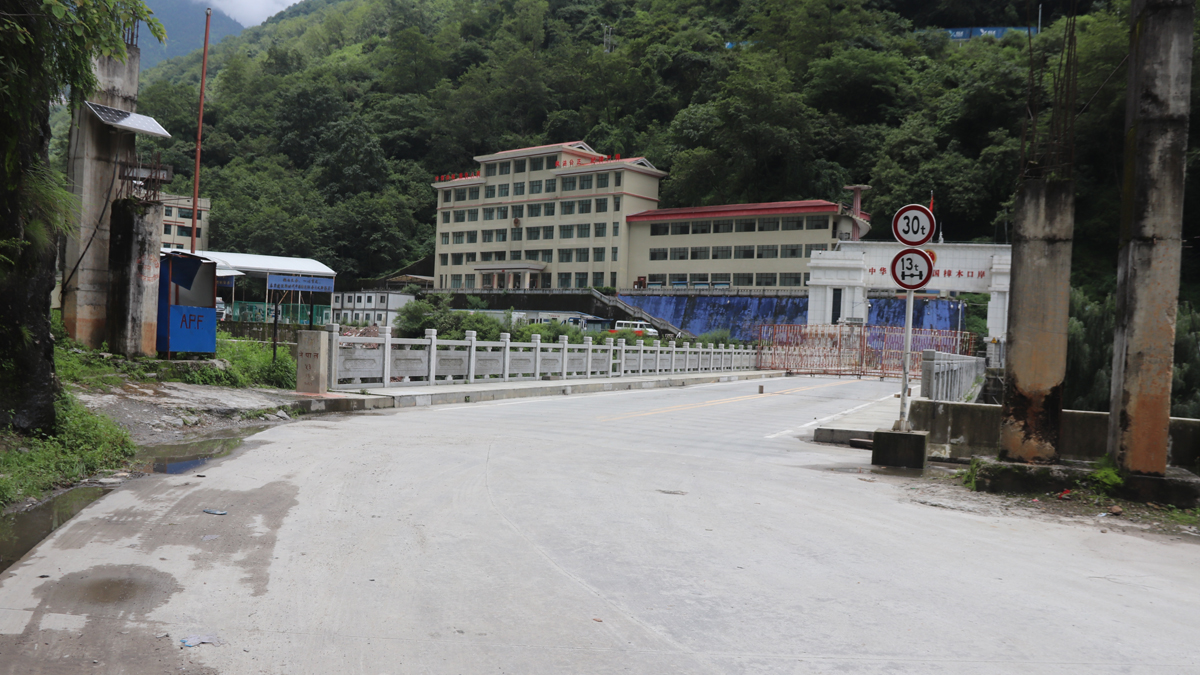
China’s Dual Assault: Worsening Nepal’s Economy While Deepening Political Engagements

The economic and political landscape of Nepal is currently facing a dual assault from its neighbor, China. As the country grapples with the aftermath of a devastating earthquake, the once-thriving Tatopani market stands as a somber reminder of the destructive power of nature. However, the decline of this border town is not solely due to natural forces but also China’s negligence, which has contributed to the worsening state of Nepal’s economy.
The Tatopani market, once a bustling hub of trade between Nepal and China, now lies in ruins. Dilapidated houses, deserted establishments, and overgrown walls paint a picture of desolation and loss. Prior to the earthquake, this market facilitated significant foreign trade, contributing billions in annual revenue to the government. However, this border town now stands as a haunting reminder of the destructive power of nature.
Prior to the devastating earthquake of 2072 Baisakh, the Tatopani area thrived as a vibrant marketplace. However, today it bears no resemblance to its former self. The Miteri bridge, which served as a crucial link between the two countries, now finds itself encircled by barbed wire, symbolizing the stark division that has arisen.
The once-thriving immigration office, bank, industry and commerce association, and other administrative and organizational establishments now lie vacant and deserted. Only a handful of containers make their way into Nepal on a daily basis, with the human presence drastically diminished. Shutters of houses along the stretch from the Miteri Bridge to Liping are either left open, closed, or only partially shut, presenting a ghostly scene.
Grass has taken over the cracked walls of houses, testament to the earthquake’s destructive force. The once-bustling town of Liping, which used to thrive in close proximity to the Miteri bridge, now appears consumed by grief in the aftermath of the disaster. The only sounds that break the silence are the monotonous sighs of the Bhote Koshi river and the occasional slow-moving vehicle.
Infrastructure structures, once robust, now resemble mere skeletons, a somber reminder of the town’s fading existence. Yet, despite the desolation, a glimmer of hope remains within the Tatopani Bazaar. Its residents yearn for a return to the vibrancy and energy of the past, dreaming of a day when life will regain its old rhythm.
The local businessmen of Liping Bazar, who now struggle to secure even a small shutter despite paying higher rents than those in the bustling capital city of Kathmandu, have abandoned the town. Those fortunate enough have relocated from the vicinity of the market, while others find themselves trapped, unable to escape the tragic aftermath of the last eight years. For the locals, this period feels like a nightmare of unimaginable magnitude, with the tremors of the past still haunting their memories.
Not only the Tatopani border, the entire international trade between Nepal and China has not yet returned to normal.
In the pre-2072 earthquake era, it appears that the two countries engaged in a substantial foreign trade worth over two and a half billion. Specifically, Tatopani customs alone facilitated an annual transaction valued at one and a half billion rupees, contributing around six billion in annual revenue to the government. The Tatopani Customs Office reports an average monthly revenue of Rs 230 million. Initially, the office employed 80 to 85 personnel, but presently, it operates with only 14 employees.
For Nepal, importing goods from Tatopani, rather than Rasuwagadhi customs, is more cost-effective in its trade with China. Despite the favorable infrastructure in Tatopani, trade in that region has declined due to China’s negligence.
The Khasa market, situated on the Tatopani border towards China, was also impacted by the earthquake, resulting in its complete closure. China has even relocated the settlement that was previously there. The former market has been relocated as well.
After conducting a geological study, the area was deemed unsafe for human habitation, prompting China to relocate the settlement. Currently, only a camp housing Chinese security personnel remains.
Furthermore, the customs office towards China has also been dismantled. China has shown little interest in constructing physical infrastructure or establishing road networks to facilitate market development in specific regions.
Many businessmen committed suicide under stress as financial conditions worsened.
The suicides of businessmen like Sudarshan Ghimire and HareRam Paudel highlight the severe financial strain faced by entrepreneurs in Nepal. These individuals, once seen as pillars of the business community, succumbed to the overwhelming pressure caused by China’s negligence, which led to goods being stuck on the Nepal-China border for months. Their tragic deaths underscore the dire consequences of China’s actions on the livelihoods of Nepali businessmen.
China’s Power Play
Nepal’s economy is facing significant challenges, with China being a contributing factor. However, instead of addressing these issues, China is intensifying its political involvement in Nepal, raising suspicions about their hidden strategic motives and power consolidation ambitions.
According to intelligence sources, a high-level delegation from the Chinese Communist Party’s International Liaison Department is currently holding talks with influential political figures in Nepal.
Chinese leaders are allegedly exerting pressure on Nepal to join President Xi Jinping’s Global Security Initiative (GSI) and Global Civilization Initiative (GCI). These initiatives are part of China’s broader strategy to expand its influence beyond the Belt and Road Initiative (BRI).
While China has been actively promoting its projects under the BRI, the GCI and GSI serve as additional means to extend its influence in Nepal.
China’s insistence on Nepal’s participation in GSI and GCI aligns with its broader efforts to exert control over Nepal’s internal affairs. This follows China’s financing of the construction of the Pokhara Regional International Airport. Initially presented as a loan grant, China later claimed that the airport was built under the BRI.
Also read:
Tatopani checkpoint wearing deserted look, some committed suicides, many left business
China’s Sloppy Trade Policy Leaves Border Market and Businesses Deserted
Road Woes: Tatopani Crossing’s Operation Hinders Drivers, Businesses, and Economic Prosperity
China’s ‘undeclared blockade’ continues on the northern border, locals and businessmen affected
China’s undeclared blockade taking Nepalese lives, who is responsible?












Comments